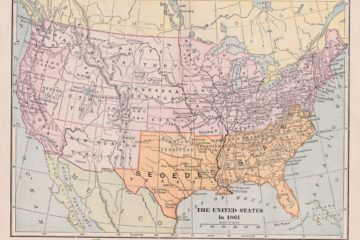OxPol Blogcast Episode 4: Mexico’s Midterm Election
Welcome to the OxPol Blogcast, a podcast where we will be sharing research, analysis, and experiences from members of the University of Oxford’s Department of Politics and International Relations. On each, episode we will talk to a guest about a piece they’ve written for the OxPol Blog. Then, we’ll discuss their larger research agenda, their insights on conducting political science, and their time at Oxford. On this episode of the OxPol BlogCast, host Chase Harrison talks to DPhil student Javier Pérez Sandoval about Mexico’s upcoming midterm election, theories of voter choices, and analysing democracy at the subnational level. Read the original blog post here: https://blog.politics.ox.ac.uk/a-return-to-the-right-for-mexico-foucaults-pendulum-and-missed-political-opportunities/ Views expressed on this podcasts are those of the guests alone and are not representative of …
A Return to the Right for Mexico? Foucault’s Pendulum and Missed Political Opportunities
In June 2021, amidst the COVID-19 pandemic, Mexico will face what is bound to be one of the most complex mid-term elections the country has seen in the last two decades. At stake is control of 15 (out of 32) governorships, 30 state legislatures, 1,900 municipalities and a complete renewal of the Lower Chamber of Congress. The outcome will clearly be either a punishment or a reward for the leftist administration of Andrés Manuel López Obrador (AMLO) and the ballots cast this summer will undoubtedly make or break the second half of his presidency. The extent to which the COVID-shock has impacted individual political preferences in Mexico remains unclear. Looking at the most recent available data to conduct an exploratory …

OxPol Blogcast Episode 3: Drug Legalisation Referendums
Welcome to the OxPol Blogcast, a podcast where we will be sharing research, analysis, and experiences from members of the University of Oxford’s Department of Politics and International Relations. On each, episode we will talk to a guest about a piece they’ve written for the OxPol Blog. Then, we’ll discuss their larger research agenda, their insights on conducting political science, and their time at Oxford. On the 3rd episode of the OxPol BlogCast, host Chase Harrison talks to recent DPhil graduate Jonas von Hoffman about the results of recent drug legalisation referendums in the United States. We compare those to legalisation movements across the Americas before chatting about his experience studying a more taboo topic in academia.
Biden, López Obrador and the politics of migration: a return to the status quo?
Joe Biden’s presidential victory has brought temporary relief for many undocumented and mixed-status families in the US. Biden promised to reverse several of Trump’s executive orders on immigration and refugee policy within his first 100 days in office including reinstating the Deferred Action for Childhood Arrivals (DACA) program, ending the Migrant Protection Protocols (MPP) also known as “Remain in Mexico,” and creating a “road map” to citizenship for the approximate 10.5 million undocumented immigrants in the US. While Biden’s immigration agenda contains federal and local level priorities, little emphasis has yet been placed on the bilateral scale with the US’s southern neighbour, Mexico. Yet, bilateral immigration negotiations should be a priority for administrations on both sides of the border. In …

Comparing the 1860 and 2020 Elections: Is the USA Heading for Another Civil War?
All summer, as protests raged over the United States, fears grew that an increasingly polarised United States was heading for another civil war. There was great worry over violence erupting across the land, and a distinct sense that there were at least two rival and distinct Americas in the country: Red America and Blue America. Political movements such as the Lincoln Project and the Wide Awake Boys explicitly made comparisons between the present time and the Civil War-era. Almost two thirds of Americans, in May 2020, believed that the country was close to civil war. The 2020 presidential election might therefore have the same effect as that of 1860 election: then, the election of Abraham Lincoln as President persuaded the …
Will Brazil’s Past be Mexico’s Future?
For the last two decades, observers and scholars of Latin American politics have wondered about the electoral fate of the left. Some analysts in particular have highlighted how the end of the ‘Pink-tide’ precipitated the comeback of right-of-centre governments across the region. But in this regard, Mexico has been running in dissonance to its regional counterparts. The right-of-centre parties Partido Acción Nacional (PAN) and then the Partido Revolucionario Institucional (PRI) occupied the executive office from 2000 to 2018 while most Latin American countries turned to either a radical or a reformist left. Now, however, left-of-centre Andres Manuel López Obrador (AMLO) and his National Regeneration Movement (MORENA) hold the Mexican presidency. To delineate what the future might hold for AMLO, we can look to the previous experience of the …
A Battle for Morena’s Soul: Mexico’s Ruling Party’s Chaotic Leadership Election
One of the great surprises of the 2018 Mexican election was not the largely predicted landslide victory of Andrés Manuel López Obrador but the commanding performance of his political party, Morena. In just its second federal election, Morena won a vast legislative majority in the federal Congress and control of state governments across the country. The party was a relative newcomer on the scene— it was founded just 5 years prior as a civic project of the left. However, in the run-up to the 2018 election, the party ballooned in size, absorbing members from across the political spectrum. Still, Morena was able to present itself as a fairly unified front in the 2018 election. However, in the past few months, the once latent internal …
When the technical is political: Colombia’s export of security expertise
In a farewell speech to Colombia’s armed forces last year just prior to leaving office, ex-president Juan Manuel Santos boasted: “Today we have the best armed forces in our history.” Proudly, he added: “We’re a global reference!” And indeed, it seems as though Colombia had opened a new chapter. Since the 2016 peace accords with the country’s largest guerrilla organisation, the FARC (Revolutionary Armed Forces of Colombia), the nation appears to be on an uphill climb. With the FARC at the negotiation table, the story goes, the country was finally able to look ahead and dedicate its resources to transition and reconstruction: the reintegration of former combatants, the redistribution of formerly occupied territories, and the recovery of an economy weakened by decades …









